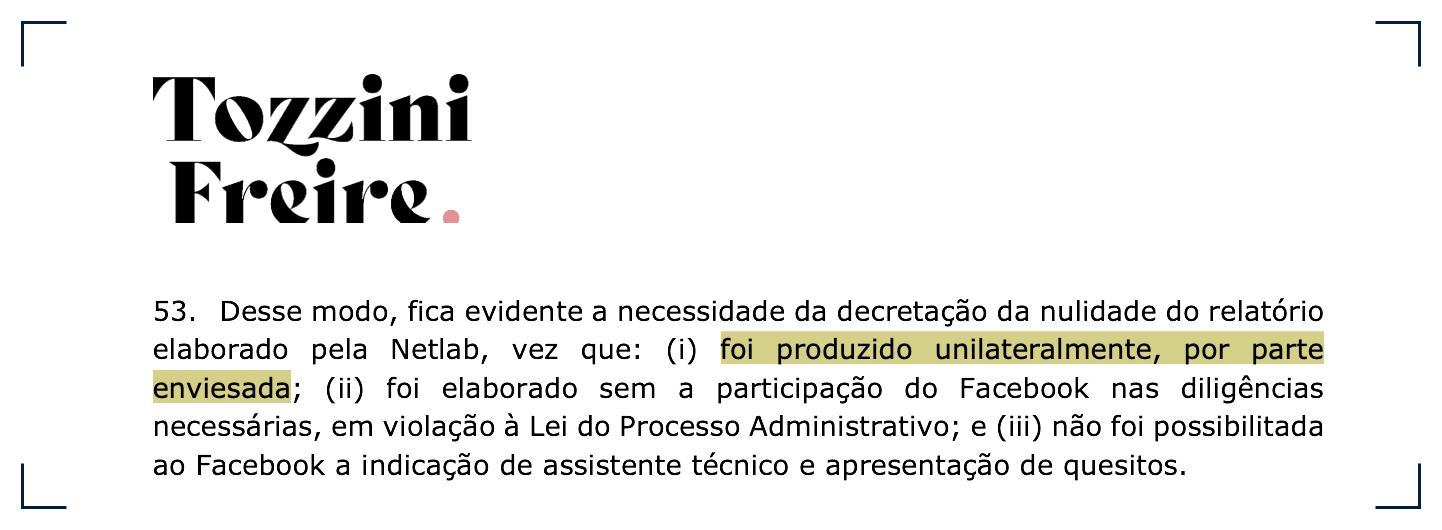Meta's external lawyers tried to discredit researchers from the Federal University of Rio de Janeiro (UFRJ) who reported failures and negligence in ad moderation in its main platforms, Facebook and Instagram, according to government documents obtained by Nucleo.
A research report produced by NetLab, a laboratory that monitors and studies social media, was used by Senacon, a federal watchdog for consumer issues, to first notify and then fine Meta in November 2023.
At the time, the research group showed that the company did not take down more than 1,800 paid advertising posts containing scams that used the name of a popular government program to assist indebted individuals, called Desenrola, even after an official notification months earlier, in July 2023, had demanded the removal of the content.
In response to Senacon's fine, which used the study as its main basis, the platform accused the UFRJ team of being “biased” and not acting “in a technical manner.”
The formal document attacking the researchers – called an administrative defense – was signed off by the law firm TozziniFreire on December 26, 2023. It is part of the case opened by Senacon against the social network, which is still ongoing, the agency informed the report.
Nucleo obtained the document through freedom of information requests for Senacon.

In the defense, Meta describes Netlab as a “partial third party” that “could never produce neutral technical evidence.”
The platform accuses NetLab's report of containing “a series of imperfections, biased responses, distorted conclusions, and reliability that is, at best, dubious,” without explaining what those errors or distortions were.
“Netlab has an institutional political opinion that is manifestly opposed to Facebook Brasil [Meta's legal name in Brazil],” the company argued. “And not only that: the coordinator of the laboratory herself, professor Rose Marie Santini, has publicly expressed strong criticisms of digital platforms,” the defense stated, citing as a source an interview in which the researcher discussed how networks profit from extremism.
Global strategy
One of the country’s leading social media scholars, Marie Santini, the coordinator of the group and the main target of the criticism, explains that defaming scientists has become a “global strategy” of Big Techs in order to try to silence critics in universities.
In the United States, the social network has gone as far as banning researchers from accessing data after they did something that displeased the company.
"They say that our methodologies are invalid or biased because they want their advertising clients to use only the metrics and analyses that they themselves create,” says the UFRJ professor.

Senacon said to Nucleo that NetLab cooperates with the agency to “provide support in administrative sanctioning processes, due to its technical expertise on the matter.”
“Senacon emphasizes that the laboratory has been providing important technical support for the instruction of the cases,” according to an emailed statement.
Nucleo has reached out to Meta and TozziniFreire, but they declined to comment.
One of Meta's arguments to discredit the group is that NetLab's report did not contain links to each of the 1,817 ads identified as fraudulent. The UFRJ group, however, shared with Nucleo the spreadsheets used in their studies with the URLs and IDs of each ad.
"This is a strategy to make us work for them, given that they have already made money from an ad, and this request transfers to us the responsibility of cleaning up their platform," said Santini.
"They never talk about data or evidence, but they want to express an opinion about me or my research lab," she says.











